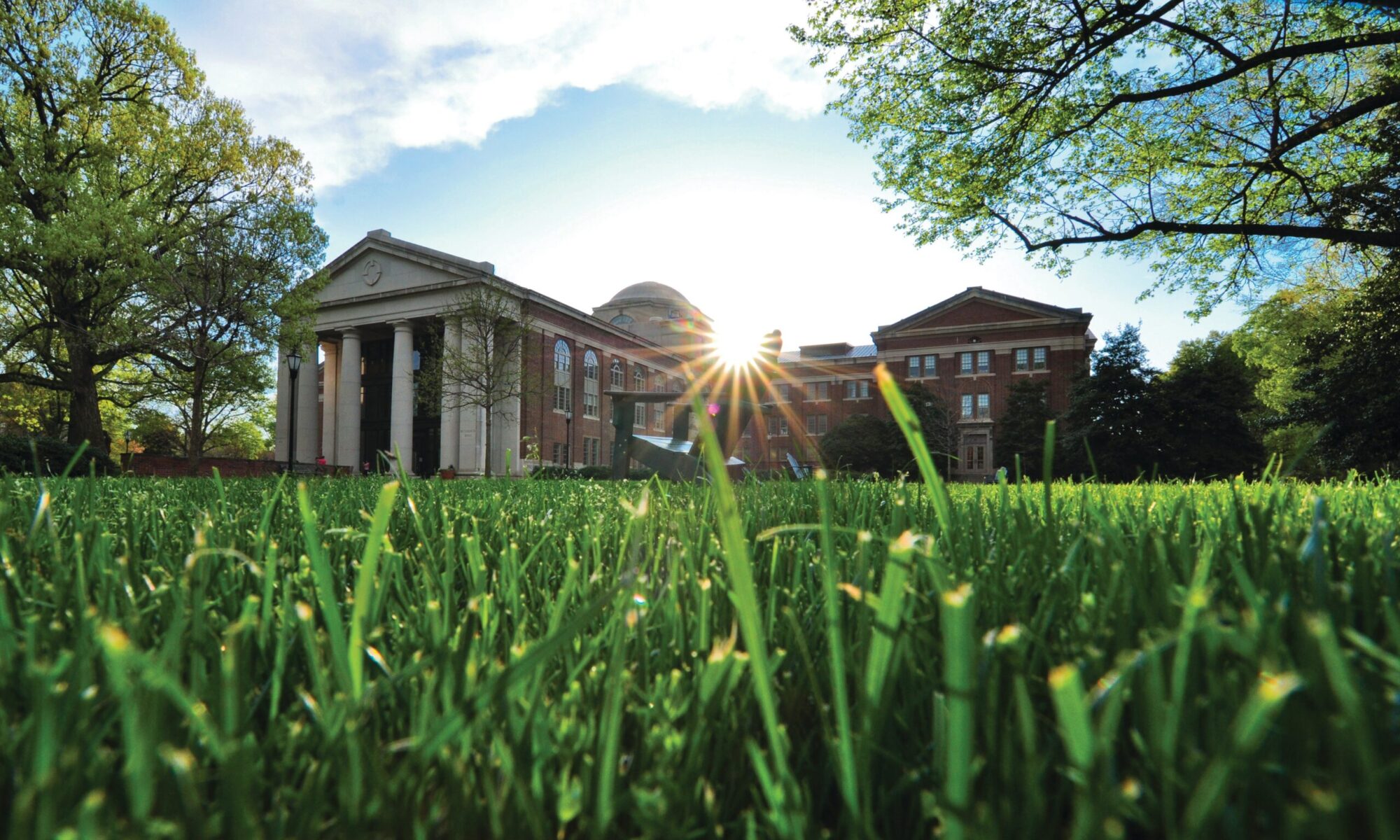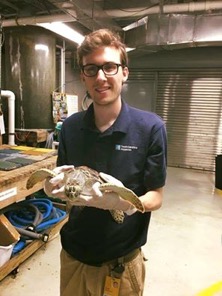By the Tuck Business Bridge Team
With the shift to virtual, remote learning in March, Tuck Business Bridge got to work making plans to deliver its summer programs virtually. The goal was simple – deliver the same high-touch, rigorous, and comprehensive program, but in an online environment. The team sought to not only replicate the residential program remotely, but to make the program even stronger by leveraging some of the benefits of virtual connection, such as special guests and increased alumni networking. On Zoom, students attended live classes, interacted with faculty, met with MBA mentors, worked with peers in study groups, completed business simulations, valued a company, participated in 1-1 resume reviews, mock interviewed, attended career workshops, and so much more. The summer was a success, with 97% of participants saying they would recommend the program to a friend.
What did Davidson students who participated this past summer think? We spoke with Chelsea Savage ‘21, Alex Gomez ‘21, and Alexandra Romero ’20 about the program – why they chose it, what they learned, and the value it provided.
Why Bridge?
Alex Gomez: As a Political Science major who’s interested in pursuing business, I wanted to learn basic knowledge and skills in order to ease this transition and gain an edge in the recruiting process. I was able to take introductory courses in Finance, Marketing, and Spreadsheet Modeling, all of which aren’t offered at Davidson.
What did the program provide?
Chelsea Savage: I came into the program with little career direction and a weak understanding of business, and I left with a focused career path and skills I will be able to display in interviews and use in the workplace.
Alex Gomez: There were also some amazing resources for networking, with lots of opportunities to hone your interviewing skills and explore different types of business careers. Additionally, I really enjoyed working with my study group throughout the program – it was nice to make friends despite the virtual circumstances, and the experience of collaborating as part of a team will serve me well in the future.
Alexandra Romero: This experience has equipped me with quantitative analytical skills in preparation for my career. Outside of the program’s curriculum, I have been able to tap into a helpful network that I am extremely grateful for.
What was your favorite class?
Alex Gomez: My favorite class was Marketing. I didn’t know much about it before, and it was really interesting and has changed my perspective on certain things like job interviews, the media, and business in general. The MarkStrat simulation was my favorite part of the program.
What company did you choose for the capstone project?
Chelsea Savage: Gap
Alex Gomez: GrubHub
Alexandra Romero: Chipotle
How was the virtual delivery?
Chelsea Savage: I am extremely thankful for the Tuck Bridge team and the work they put in to make the online program just as accessible and supportive as it would have been on Dartmouth’s campus. Even though it was virtual, the invaluable connections I was able to make with peers, career professionals, and recruiters gave me the boost I needed to solidify my professional skills.
Alex Gomez: I thought the virtual format went as well as it could. While Zoom fatigue was inevitable, I still learned a ton and was able to bond with my study group.
What is your biggest take away?
Alex Gomez: The ability to work in a team is arguably the most important skill in business (and is crucial for life in general).
Alexandra Romero: This program gave me the ability to speak confidently about business topics that I otherwise would have not been able to speak on as an Environmental Studies major.
Would you recommend the program?
Chelsea Savage: If you are interested in business at all, I would highly recommend applying!
Alex Gomez: I would definitely recommend Bridge to anyone who is interested in a business career.
Want to learn more about the Tuck Business Bridge program? Visit the website, attend one of our virtual events, or reach out to recruiting manager, Sarah Chapin at sarah.b.chapin@tuck.dartmouth.edu
Read their testimonials below:
Chelsea Savage ’21 | Sociology
I really enjoyed my virtual experience with Tuck. I came into the program with little career direction and a weak understanding of business, and I left with a focused career path and skills I will be able to display in interviews and use in the workplace. Even though it was virtual, the invaluable connections I was able to make with peers, career professionals, and recruiters gave me the boost I needed to solidify my professional skills. I am extremely thankful for the Tuck Bridge team and the work they put in to make the online program just as accessible and supportive as it would have been on Dartmouth’s campus. If you are interested in business at all, I would highly recommend applying!
Alex Gomez ’21 | Political Science
I really enjoyed my experience at Tuck Bridge. As a Political Science major who’s interested in pursuing business, I wanted to learn basic knowledge and skills in order to ease this transition and gain an edge in the recruiting process. I was able to take introductory courses in Finance, Marketing, and Spreadsheet Modeling, all of which aren’t offered at Davidson. I found the fast-paced and rigorous nature of the program to be quite rewarding, and was surprised at how much content was covered over three weeks. There were also some amazing resources for networking, with lots of opportunities to hone your interviewing skills and explore different types of business careers. Additionally, I really enjoyed working with my study group throughout the program – it was nice to make friends despite the virtual circumstances, and the experience of collaborating as part of a team will serve me well in the future. We did a company valuation of Grubhub for our final project, and it was really cool to combine what we learned in class with real-life research and analysis of the mobile food delivery industry. Overall, I would definitely recommend Bridge to anyone who is interested in a business career.
Alexandra Romero ‘20 | Environmental Studies
My role in my team was to research and analyze Chipotle’s digital strategy and describe how it contributed to our Chipotle valuation. This program gave me the ability to speak confidently about business topics that I otherwise would have not been able to speak on as an Environmental Studies major. This experience has equipped me with quantitative analytical skills in preparation for my career. Outside of the program’s curriculum, I have been able to tap into a helpful network that I am extremely grateful for.















 declines in the area. I conducted a series of tests on these terrapins and I am planning to submit my findings for publication later this year! Hopefully, my research can help mitigate terrapin deaths in the future. My previous exposure with terrapins also allowed me to start a biweekly terrapin educational program at the aquarium geared for younger children and teenagers. I was told by several of my supervisors that many guests commented that they loved the chance to have hands-on experiences with terrapins, so I believe it was a successful endeavor! As one of my professors used to comment, ‘you never know when one experience, however brief, could inspire a kid to be the next biologist or vet or scientist’. I’d like to think that I was allowing the thousands of kids I talked with to have such an experience.
declines in the area. I conducted a series of tests on these terrapins and I am planning to submit my findings for publication later this year! Hopefully, my research can help mitigate terrapin deaths in the future. My previous exposure with terrapins also allowed me to start a biweekly terrapin educational program at the aquarium geared for younger children and teenagers. I was told by several of my supervisors that many guests commented that they loved the chance to have hands-on experiences with terrapins, so I believe it was a successful endeavor! As one of my professors used to comment, ‘you never know when one experience, however brief, could inspire a kid to be the next biologist or vet or scientist’. I’d like to think that I was allowing the thousands of kids I talked with to have such an experience.